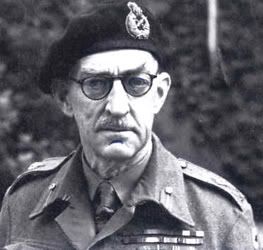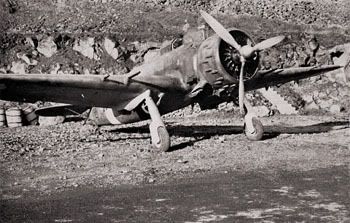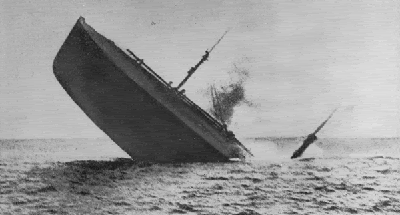God Save Us All - Part Six
A Peace Resting on Quicksand
Chapter 48 – The Suez War, Part 4
The British offensive, code-named “Operation: Pillar”, was set to kick off on February 3rd, 1936. The main objective of the operation, like most military endeavors into Palestine, was the capture of Jerusalem and the expulsion of the Turkish army there. Leading the attack was the 1st Armoured Division, under the command of General Percy Hobart after he took over for General Herbert Lumsden, who was forced back to England due to sickness. Hobart wasn’t well liked by the War Office due to his “unconventional” ideas on warfare, but the recent success of armor in the Sinai had prompted them to give the much-maligned General a chance.
Set to face the Western Desert Corps was the undermanned and under supplied Turkish Army under Enver Pasha. More men had been brought in from other parts of the empire, but as the Pasha had found out in the Sinai, a regiment of infantry holding rifles was no match for 5 tanks with 2-pound guns and 30mm of armor. To counter that, the Pasha ordered several 37mm anti-aircraft guns from Istanbul. Reports from the first battles in the Sinai had said that anti-aircraft gunners had achieved some degree of success using these guns against British armor, especially the Cruiser Mk I with it’s thin outer shell. Enver only hoped that this would be enough to beat back an assault into his lines.
On the morning of February 3rd, the diesel engines of British tanks were heard rumbling to life. The British had made no attempt whatsoever to hide their preparations for Operation: Pillar, instead, they had preferred to let their intentions be known, challenging the Turks to stop them. What they hadn’t counted on, though, was the rather large amount of aircraft that the Ottomans had amassed in Palestine. Most of the planes were Prussian-supplied Henschel HS 123 Fighter-Bombers, but the Turks had also gotten their hands on a few Italian Breda Ba.65 Ground Attack aircraft. The British also had a substantial number of warplanes in the theatre, but most were stationed in Alexandria, as the threat of the Ottoman Air Corps was never fully realized.
A Turkish Ba.65 At a Palestinian Airfield.
This was to prove costly.
Seeing as the Turks had pulled most of their forces from the front lines, having conceded them to the Western Desert Corps (WDC) before they had even crossed into it, the British had an easy time advancing into Palestine at first. This didn’t last very long, though. Turkish resistance began to stiffen, and the British advance slowed to a crawl. The Turks had learned their lesson in the Sinai, and found that tanks undefended by infantry were easy targets for their 37mm AA guns. This little weapon proved not only to just be deadly to the British tanks, but devastating. One round could pierce the armor and usually reach the gasoline tank, transforming what was once a deadly weapon of war into nothing more than a flaming wreck. To make things even worse for the WDC was the Ottoman Air Corps, particularly the two squadrons or so of Breda Ba.65s. Out in the open, with almost no air cover, the Ba 65s simply wreaked havoc onto the British. This didn’t last long, as the RAF’s presence was soon called for over Palestine and quickly received.
Nonetheless, the damage had been done. Less than 2 weeks into Operation: Pillar and the WDC had lost 50% of its armor and about 4,000 men. It pressed on its attack, though, and the Ottomans had no choice but to keep withdrawing in the face of overwhelming numbers and firepower. After three weeks of hard fighting and heavy casualties, on February 26th, 1936, the Union Jack was raised over Jerusalem. The War Office in London called for the Western Desert Corps to press on further into Syria, however, General Auchinleck declined, instead choosing to rest and reinforce his tired and depleted army.
Meanwhile, at sea, a British blockade of the Ottoman Empire’s Mediterranean ports was beginning to bear its fruit. The Turks were forced to turn to Russia for its imports of food and natural resources, a move that Istanbul would have rather avoided. Russia complied, but did not provide much.
The Royal Navy used this war as a chance to experiment with submarines, which had previously never been used in action. They prove to be incredibly successful, sinking many Turkish merchant ships, and even an Ottoman cruiser. The world took note of this, especially France, which had a submersible program going back to the 1880s.
A Turkish Merchant Ship Sunken by a British Submarine.
To Be Continued...



